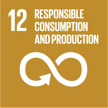About this project
Based on our market survey in 2019, many export and local market traders at Kajiado, Nairobi and Machakos counties express difficulty finding consistent supply of quality and affordable vegetables, fruits and herbs. They say that they meet high logistics costs pulling in supplies from far counties and countries. While large farms occupying Kajiado County produce flowers and other cash crops for export. The Kenya National Bureau of Statistics indicate that the three counties have a total population of 7 million people, out of whom, 79% are urban dwellers. The counties are semi-arid, largely depending on food and water draining from highland counties.
Our project is solving this problem by engaging young men and women in climate-smart agribusiness. We acquired a 10-acre/4 hectares piece of land in November 2019, which would be a production and training site for over 750 youth in our community. We produce vegetables and herbs which provide the best first-hand solution for the health and well-being of a target market of 3.5 million people in the three counties. We farm on open field, feeding the plants through drip irrigation, with water from a borehole, as well as, rainwater stored in water tanks and a reservoir. Now we are preparing to install greenhouse hydroponics technology so as to conserve the use of water and enhance food production by 30% all-year-round. We also use big data linking our farm and young producers to over 5000 local and export marketplaces.
Agriculture is considered of great value for the country’s growth of GDP, directly supporting over 60% of the population. There is increased demand for fresh vegetables, herbs and fruits. While the export markets demands value added products which they can sustain for a reasonable amount of time. These are the trends which our innovative and results-oriented team would want to achieve.
Goals and Objectives
Our goal is to create positive social-economic impact for over 750 young men and women, including those with disability, through employable, income generating and community development activities in climate-smart agriculture at Kajiado County.
Objectives
- To install climate-smart technology of greenhouse hydroponics and drip irrigation, so as to increase production by 30% all-year-round.
- To expand production to at least 20 acres of land, so as to ensure consistent supply to the serviceable available market of 3.5 million people.
- To train 750 young producers and coordinate crop rotation on blocks, so as to ensure equal access to resources for everyone.
Expected result
The expected results are that:
- Crops will produce 30% more yield all-year-round, compared to plants grown directly on the soil.
- The technology will save 60% more water and energy because it involves a system of water recycling through the reservoir and storage tanks.
- The project will employ more 75% human capital on production, research and innovation activities, enabling us to tap on the future demands of decent work.
- The project will also increase market share from 0.5% to 21%, and sustain daily market demand, through expansion to more acres.
- The project will generate an average weekly revenue of USD 10,000 for the community, covering production and human capital costs.
Sustainable Development Goals
About me / organisation
Grace Jayo
Grace Jayo is an entrepreneur and innovative tech developer in social-economic development for agriculture, education, and trade. She is a passionate farmer who has invested time and money since primary school in horticulture production, including committing her first working years after high school as a Project Management Assistant at Western Agribusiness Investment and Latia Agribusiness Solutions Ltd.
Grace also coordinates MarketDesign, a virtual business community to help the local agribusinesses to access unlimited markets and profiling services.

